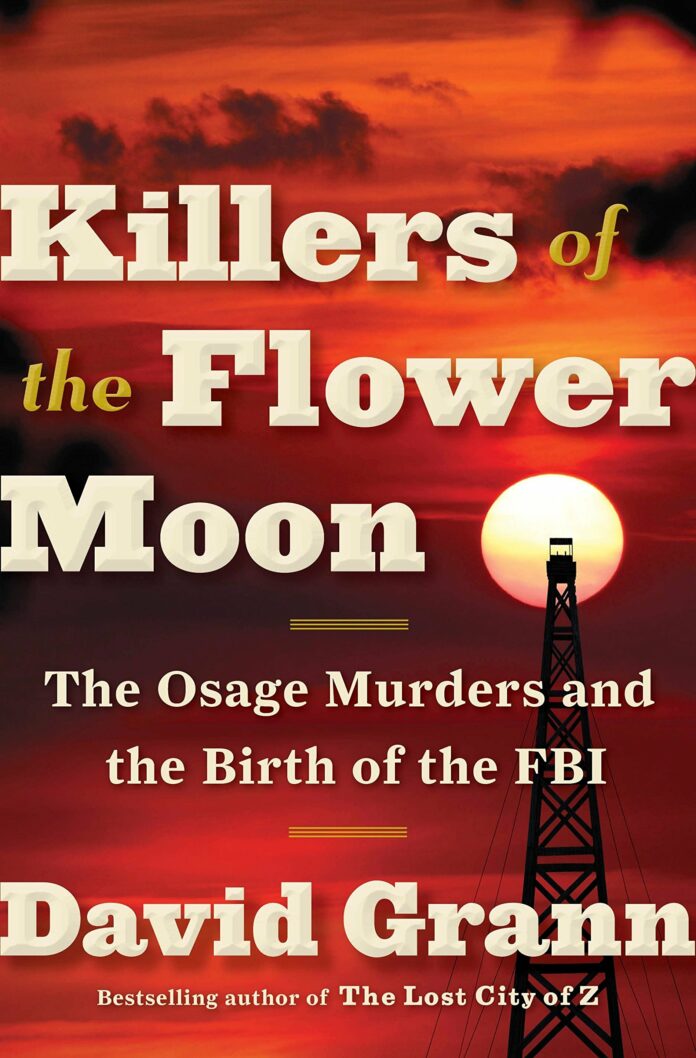Author David Grann will speak in Ketchum
By Dana DuGan

During the Sun Valley Center’s new BIG IDEA Project, “Unraveling: Reimagining the Colonization of the Americas,” various lectures, films and events will be held. It’s a subject rife with possibilities. On Thursday, March 14, at 6:30 p.m., acclaimed nonfiction author David Grann will speak at the Presbyterian Church of the Big Wood, 100 Saddle Road, in Ketchum.
Grann’s most recent book, “Killers of the Flower Moon: The Osage Murders and the Birth of the FBI,” documented one of the most sinister crimes and racial injustices in American history. Described by Dave Eggers in The New York Times Book Review as a “riveting” work that will “sear your soul,” Grann’s book was a finalist for the National Book Award and a winner of the Edgar Allen Poe Award for best true crime book, a Spur Award for best work of historical nonfiction, and an Indies Choice Award for best adult nonfiction book of the year.
According to The Center, this BIG IDEA Project will offer up a variety of perspectives on the colonization of the continent. The European conquest is the most oft told, but many indigenous cultures already existed. These are the stories to which “Unraveling” will give voice.
Grann’s book, “Killers of the Flower Moon,” falls into this idea of alternative perspectives. In the 1920s, the richest people per capita in the world were members of the Osage Indian nation. The Osage, a large tribe that had many separate factions, were forced off their land in Missouri when the U.S. government opened the area up to settlers, despite a treaty. Once displaced on a reservation in Oklahoma, oil was discovered on their new land. The Osage were soon living life as they thought befitted wealthy people: they rode in chauffeured automobiles, built mansions, had servants, and sent their children to study in Europe.
The federal government, seeking to quash this outrageous behavior—though perfectly happy to allow white men to flaunt wealth and go broke with alacrity—appointed white guardians to monitor many of the tribe’s spending habits. Even minute purchases had to be authorized; corruption was inherent. A government study estimated that by 1924, nearly 600 guardians had swindled some $8 million in Osage oil funds.
Then things got worse. Tribe members were brutally murdered with no known motive. In 1923, the fledgling and untested FBI came in to investigate, and actually charged the tribe with the cost to do so. Now a national story, it came to be known as the Osage reign of terror.
A conspiracy was eventually revealed, with one man sentenced for just one murder out of many dozens. He was eventually paroled, and in 1965 was granted a full pardon by Oklahoma’s then governor.
Grann’s book takes the first serious, hard look at this notorious piece of American history. In doing so, he reveals how the U.S. government implemented destructive policies and behaved toward native people with overt racism. It is a story of the evil men can do to each other. It’s a story of America, the one we live in still.
Grann has been a writer for The New Yorker since 2003. Before joining The New Yorker, he was a senior editor at The New Republic and executive editor of The Hill. His work has appeared in The New York Times Magazine, The Atlantic and The Washington Post.
Grann’s upcoming book, “The White Darkness,” which will be published in October, is a true story of adventure and obsession in the Antarctic.
Other events in the project will include “The Consequences of Colonialism,” a free lecture on Tuesday, March 19, with Gay Bawa Odmark; a free evening exhibition tour on Thursday, March 21; and the screening of the film “Dawson City: Frozen Time” on Thursday, March 21, at the Magic Lantern Cinemas.
For more information and tickets to any event, visit sunvalleycenter.org or call (208) 726-9491.



